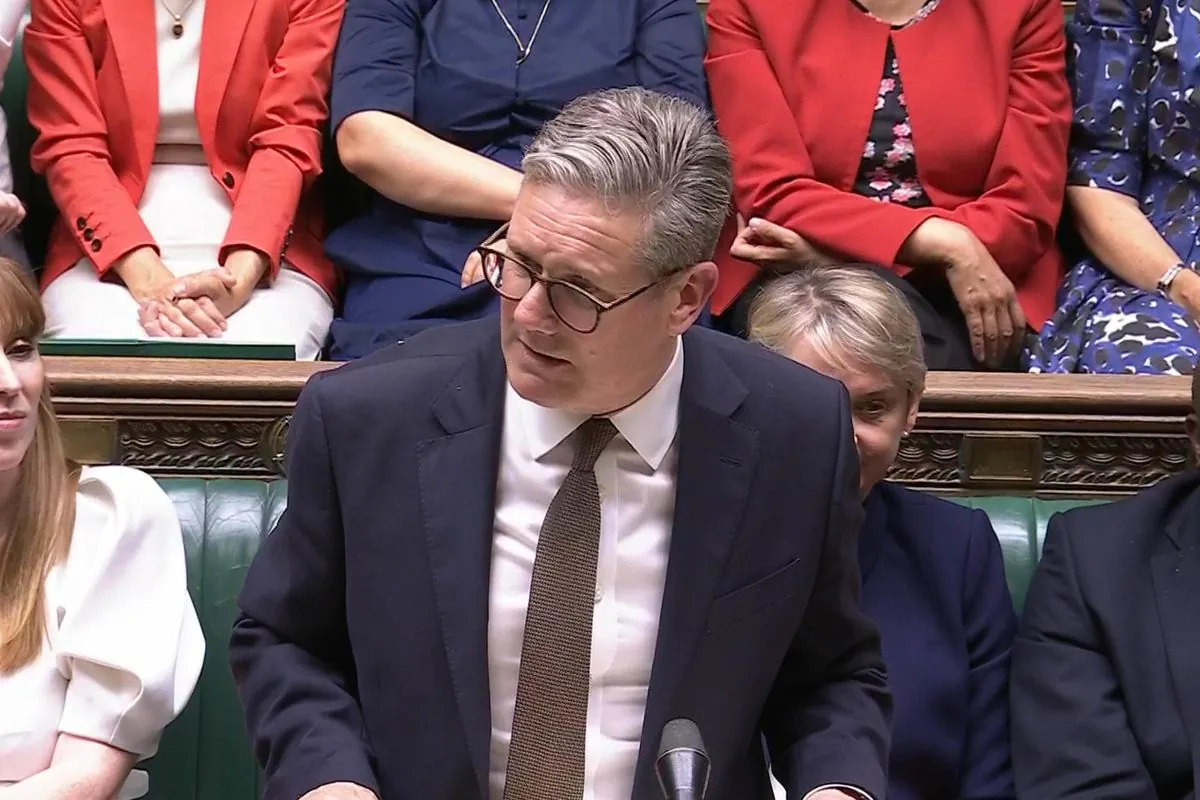Starmer's Labour: Navigating Challenges in Post-1997 Political Landscape
Starmer's government faces severe challenges within the post-1997 political framework. Despite competence, success seems unlikely due to deep-rooted issues and global pressures, calling for new approaches across the political spectrum.

The current Keir Starmer government, despite its substantial majority and apparent improvement in competence over its predecessor, faces an uphill battle in achieving its self-defined objectives. This predicament stems from two primary factors: the magnitude of challenges confronting the UK and the nature of the political project it represents.
Starmer, who assumed leadership of the Labour Party on April 4, 2020, recently delivered a speech warning of potentially a decade of economic hardship. This stark message contrasts sharply with the optimistic "Things Can Only Get Better" slogan of 1997, reflecting the gravity of the situation.
The Starmer administration embodies what can be termed as technocratic managerialism, a political approach that emerged during John Major's tenure and gained prominence under Tony Blair. This style of governance, which combines regulated markets with social engineering and expert-led policymaking, has dominated UK politics since 1997, regardless of the party in power.

This political model was not unique to the UK. Similar approaches were adopted by Bill Clinton in the United States and Gerhard Schröder in Germany. Currently, Olaf Scholz's government in Germany represents the last stand of this political order in that country.
The Starmer government aims to address the UK's various issues within the framework of this post-1997 consensus. However, the likelihood of success is slim due to two main reasons:
The severity and extent of problems facing the UK, which have intensified since 2008. These include:
- Stagnant productivity and lack of economic growth
- Dysfunction in major institutions like the Home Office, NHS, and criminal justice system
- Global challenges such as declining birth rates, climate change impacts, and geopolitical instability
Many of these issues are products of the post-1997 consensus itself, such as:
- Over-reliance on the financial sector, which contributed 8.6% of total UK economic output in 2021
- A low-skill, low-wage economy dependent on migrant labor inflows, with net migration reaching 504,000 in the year ending June 2022
The UK's aging population, with 18.6% aged 65 and over in 2021, adds another layer of complexity to these challenges. Additionally, the commitment to net-zero carbon emissions by 2050, made in 2019, presents both opportunities and hurdles for economic growth.
"Things Will Get Worse Before they (Maybe) Get Better"
While hoping for the government's success to some degree, it's crucial for other political traditions - conservative, liberal, old labour, and left - to prepare for the potential failure of managerial technocracy. They must confront the harsh realities, particularly the difficulty in achieving economic growth, and develop alternative approaches to address these challenges.
As the UK navigates these turbulent waters, it's clear that new, innovative solutions beyond the post-1997 consensus will be necessary to tackle the multifaceted issues facing the nation.


































